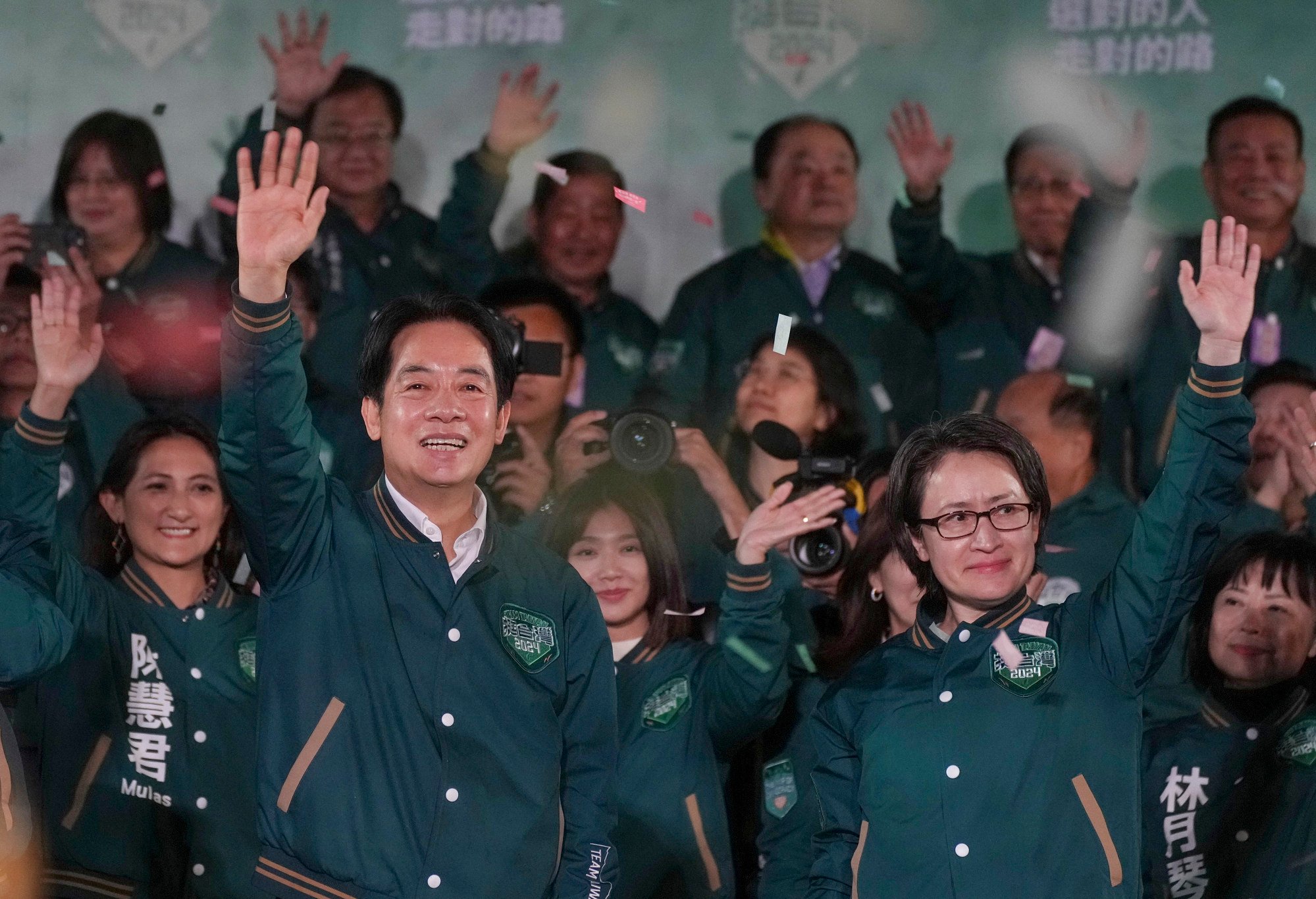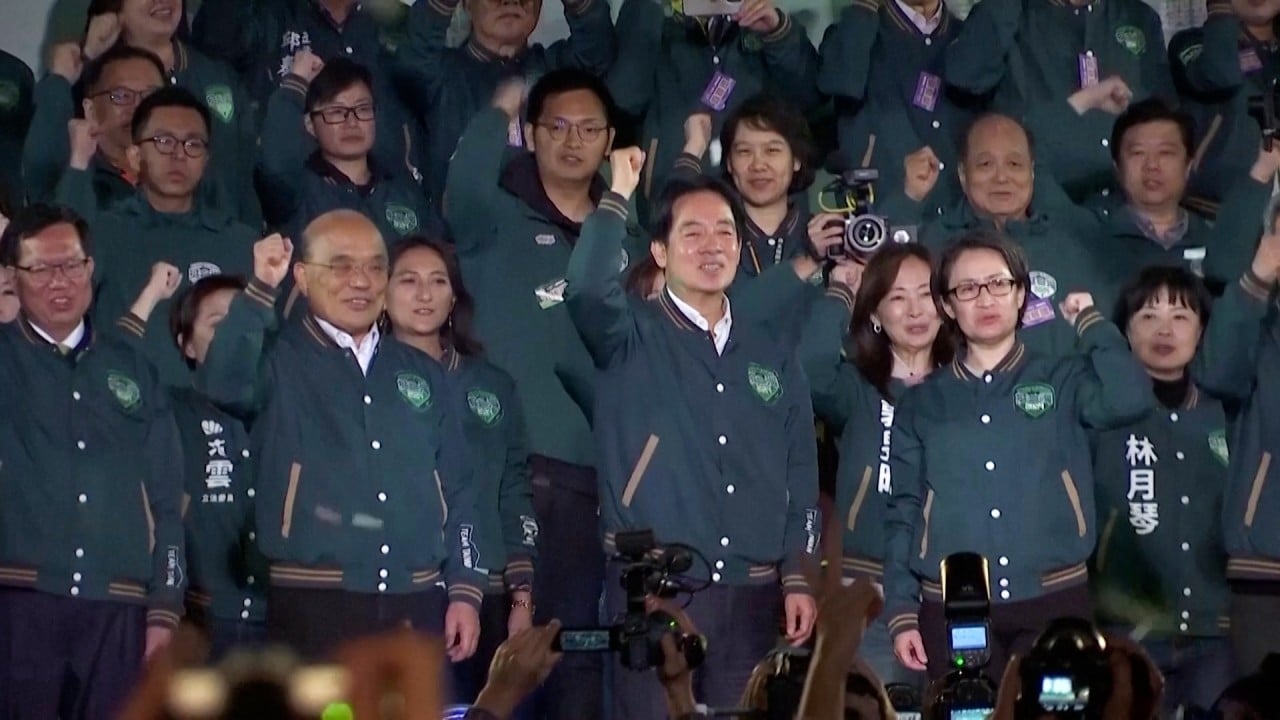
Beijing hits out over Taiwan vice-president-elect Hsiao Bi-khim’s ‘personal’ trip to the US
- Island’s former de facto ambassador to Washington said to be travelling in private capacity
- Beijing opposes visit and urges Washington not to arrange ‘any form’ of official contact
The visit by Hsiao – former de facto ambassador to Washington who will be sworn in as vice-president in May – was confirmed by the island’s ruling Democratic Progressive Party.
Liu Pengyu, a spokesman for Beijing’s embassy in Washington, said Beijing firmly opposed any visit by Hsiao to the US “in any name or under whatever pretext”, according to a Reuters report on Tuesday.
Liu called Hsiao a “diehard ‘Taiwan independence’ separatist” and said Washington should “not arrange any form of contact” between US government officials and Hsiao.
Beijing sees Taiwan as part of its territory that must be reunited – by force if necessary. The US, like most countries, does not recognise the self-ruled island as independent but is opposed to any forcible change to the status quo and is committed to arming the island.

Hsiao, 52, of the independence-leaning DPP, has been blacklisted and sanctioned twice by Beijing for “colluding with the US” and “provoking confrontation” between Taiwan and the mainland.
Hsiao, a fluent English speaker, developed connections with a host of US officials, lawmakers and think tank scholars during her three years as Taiwan’s representative to the US, which ended in November when she joined Lai on the campaign trail.
Her US visit has been kept low-key compared with Lai’s high-profile trip to attend the National Prayer Breakfast in Washington in February 2020, three months before he was sworn in as deputy to incumbent President Tsai Ing-wen.
Both Taiwan’s presidential office and the island’s foreign ministry on Tuesday said they had no information about Hsiao’s US visit.
But Wu Cheng, a DPP spokesman, confirmed the visit, saying Hsiao was “travelling in a personal capacity” and he had “no further detail” about the trip.
Beijing’s military budget isn’t a surprise, but Taiwan is taking no chances
A US State Department official told Reuters that Hsiao was in Washington for a few days “in her personal capacity to tend to personal matters” but did not say if she would meet any US officials during the visit.
“The United States has a long-standing precedent of transits by Taiwan officials and visits by candidates and vice president-elect before they assume office,” the official said.
According to a Wall Street Journal report, citing unnamed sources, Hsiao plans to meet US officials during the trip, and would also be packing up personal belongings she left behind in the US when she returned to Taiwan to campaign with Lai last year.
The report said Hsiao would discuss the Lai government’s agenda with members of the Joe Biden administration before travelling to several capitals in Europe, also in a private capacity.
Arthur Ding, a retired professor of Chinese security studies and international relations from National Chengchi University in Taipei, said Hsiao could be expected to discuss Lai’s cross-strait policy with US officials during the trip.
“Lai’s previous acknowledgement that he was a pragmatic worker for Taiwan independence has aroused concerns in the US, so there is a need for Hsiao or other officials from Taiwan to explain to the US administration how the Lai government will handle its cross-strait policy,” he said.
‘Bitter fruit’ for foreign supporters of Taiwan independence, Beijing warns
Lai has been branded by Beijing as an “obstinate separatist” and “troublemaker” who will bring war to Taiwan.
Beijing had repeatedly warned Taiwanese voters against electing Lai in the lead-up to the January 13 presidential poll and has labelled the result as “unacceptable”.


